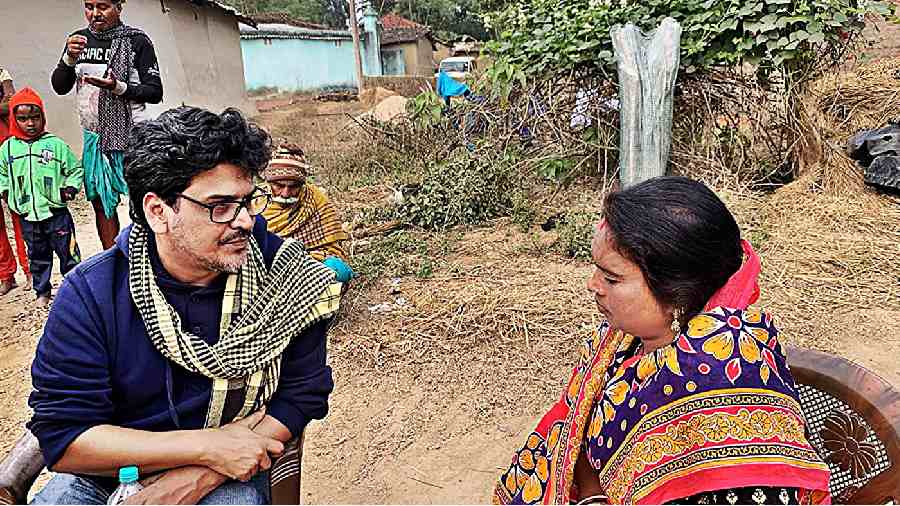Throughout history, art forms have been influenced by politics, society and power structures. Nachni, meaning the 'dancing lady', similar to the Baijis of the eighteenth century who entertained people of the zamindari household, is no exception to such influences. These are women who dance to Jhumur songs, the traditional songs mainly based on mythical fiction. They are inhabitants of the eastern portion of Chhota Nagpur, specifically Bengal and Jharkhand. In Bengal, they are scattered over Purulia, Bankura, Bardhaman, and Birbhum. Despite being practitioners of a woman-centric art form, the Nachnis live a challenging life as the 'untouchables' of society. Filmmaker Rajaditya Banerjee's 90-minute Bengali documentary, Acchyut – The Untouchable, is a tribute to this community and is based on their struggle for life and existence.
Rajaditya is an independent filmmaker, poet, playwright, theatre artiste and actor, working in the contemporary Bengali film industry to make experimental films based on concepts like the death of language, the death of relationships and even the death of professions. His first film Death Certificate was internationally recognised and his next, Acchyut, the first film of a trilogy on the spirit of Indian women and their disgrace, has been invited to be screened for festivals in Austria, Italy, France and Germany. "I always wanted to pay tribute to Indian women of substance through my cinema and for the last 25 years I have been travelling to the nooks and corners of India and working with women and especially with groups of people who are not privileged like us and forgotten by mainstream society. And I found these stories can be changed and we can improve lives and conditions for the women and children from there," said Rajaditya.
Not only is the nachni community the 'cultural untouchables' but also their profession is endangered. As the community continues to fight to keep alive themselves and their art form, the younger generation is not curious about the skill. The majority of the nachnis today are barely between 40- 80 years. For them, life is full of uncertainty and social disgrace. No so-called literate from the upper-class society come forward to perform their last rites. They are a community that survives human disrespect and exploitation. "The nachni tradition in Purulia has its roots in the feudal estate of Baghmundi under the zamindari of Ayodhya Prasad Singhdeo, claims famed scholar and social reformer Mahasweta Devi. It is evident from this that the nachni tradition developed as a result of the feudalistic structure of the society. Despite playing a significant role in the rural entertainment scene, these cultural untouchables have long been ignored and are fast vanishing. These folk dancers of rural Bengal, who their masters exploit, have no choice but to continue dancing and performing to get out of poverty and squalor," said Rajaditya on the choice of his subject.
The Indian-Finland production has been made in the docu-feature style by portraying the real-life story of the remaining Nachni artists of Purulia — Postubala Debi, Jyotsna Debi and Charubala Debi. "I came to know of them while shooting my feature film. I first went to Purulia when my dad took me, it was extremely cold but I was fascinated to see this dance form. I was too young to understand the nuances but it did leave a mark. I started reading about them and talking to them. In the last 15-20 years, I was in Purulia, talking to them in person. I thought it would be a very good time to make a film about them and to tell the world that on paper even though untouchability has been abolished but the reality is very different. Untouchability is something that mainstream society is not part of. Couple of things we have had to re-enact because nachnis are not allowed to become mothers. Older men who never marry these nachnis never give them the recognition and rights that come with marriages, they don't allow these women to become mothers," said Rajaditya.
However, Rajaditya sees a ray of hope and feels things will change for them. "The film is actually a depiction of three Durgas in our society whose stories are not known. I feel as a filmmaker my job is to show the reality without getting judgemental of the position. There are women in our society who are not treated as humans. We always talk about preserving the heritage and culture of Bengal. So, people who are an integral part of this culture should not be ignored," he added.











